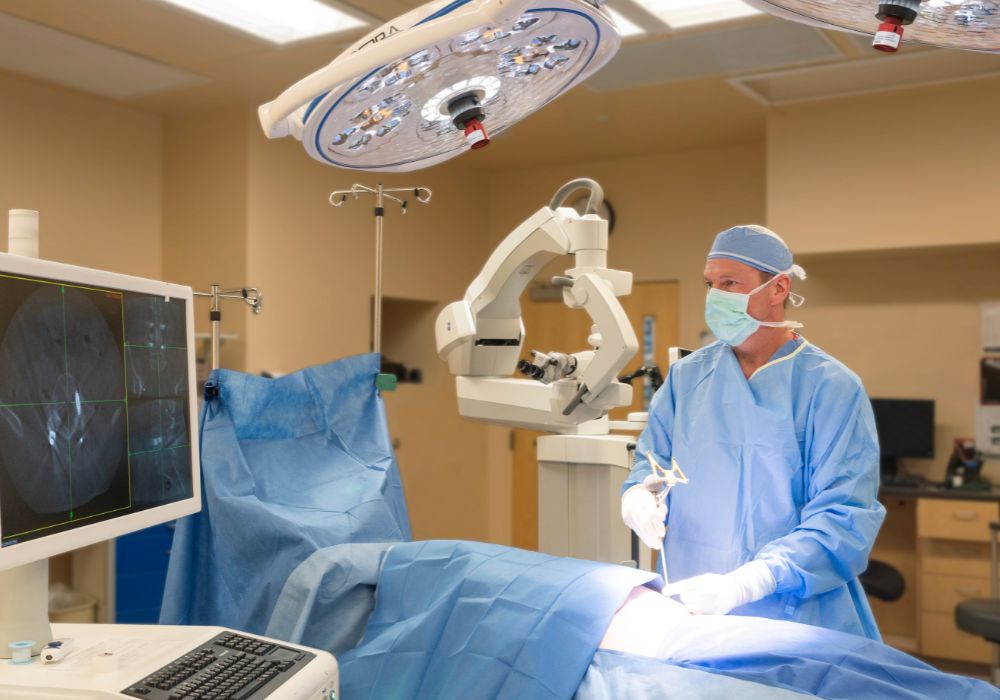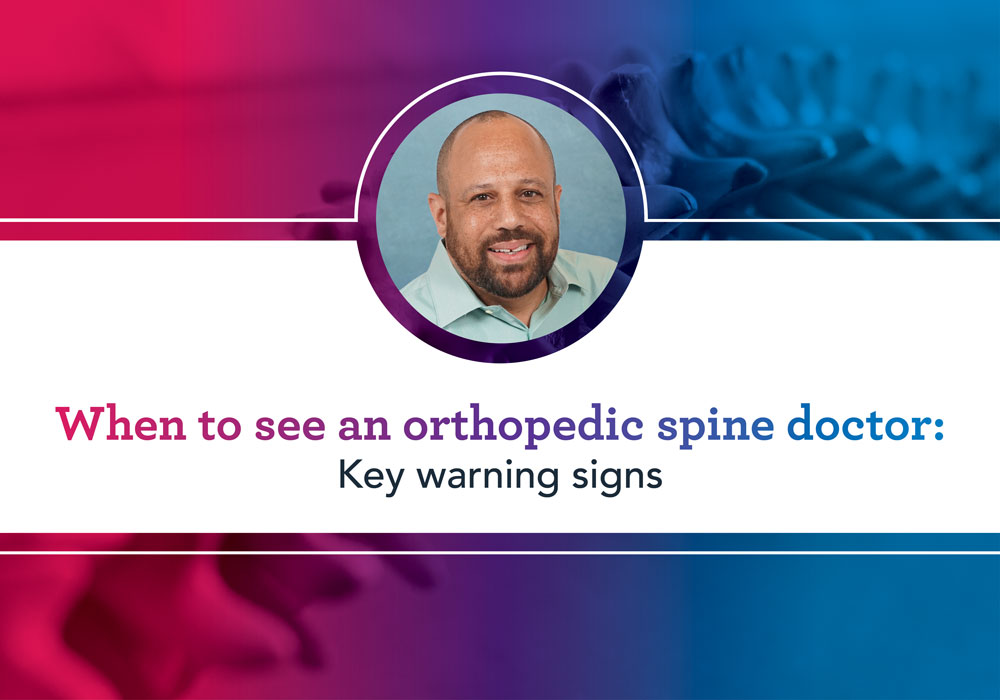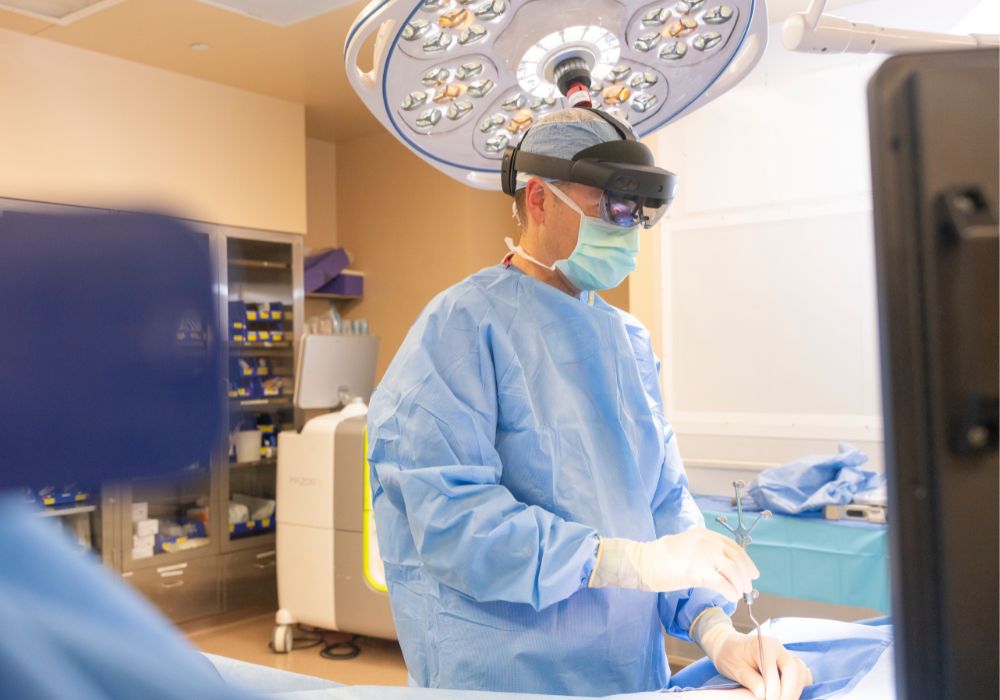THIS POST IS PART OF THE ULTIMATE GUIDE TO BACK PAIN RELIEF
Cervical radiculopathy is more commonly referred to as a pinched nerve in the neck. This occurs when a nerve in the neck is compressed or irritated where it branches away from the spinal cord before going down the arm.
Read on to learn more about the causes and symptoms of a pinched nerve in the neck, and the treatments available to relieve the pain.
Anatomy
The spine is made up of 24 bones, called vertebrae, which are stacked on top of one another. These bones connect to protect the spinal cord. The seven small vertebrae that begin at the base of the skull and form the neck comprise the cervical spine.
Your spinal cord and nerves travel through the spinal canal carrying messages between your brain and muscles. The intervertebral discs between your vertebrae are flexible, flat, and round discs and are about a half-inch thick.
They act as shock absorbers when you walk or run and allow motion between the vertebrae.
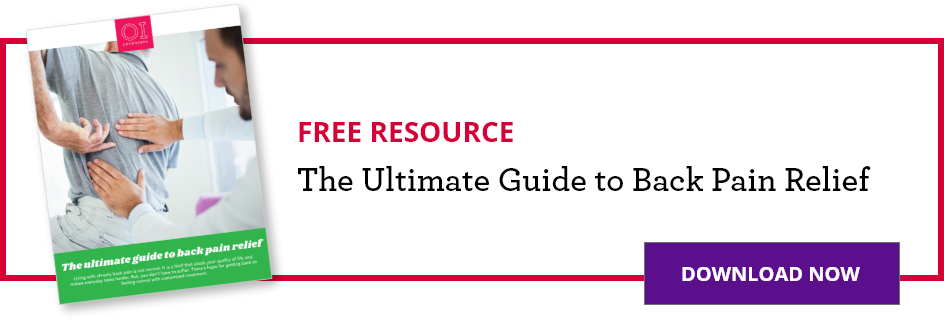
Cause
Cervical radiculopathy and the associated symptoms of a pinched nerve in the neck are often a result of degenerative changes in the spine as we grow older or from an injury that causes a herniated or bulging intervertebral disc.
Degenerative changes
As we age, the discs in the spine undergo degenerative changes, including losing height and beginning to bulge. The water content begins to dry out, which causes the disc to become stiff.
Consequently, the disc space can collapse. This causes the vertebrae to move closer together. The body responds by forming more bone, called bone spurs, in an attempt to strengthen the spine. However, bone spurs contribute to the stiffening of the spine.
Additionally, bone spurs may narrow the foramen, which is the small openings on each side of the spinal column where the nerve roots exit, which then pinches the nerve root.
Herniated discs occur when the jelly-like center (nucleus) of the disc pushes against its outer ring (annulus). If the disc is very worn or injured, the nucleus may squeeze all the way through. This puts pressure on the nerve root, causing pain and weakness in the area the nerve supplies.
Symptoms of a pinched nerve in the neck
- Pain that starts at the neck and travels down the arm in the area served by the damaged nerve
- Pain that is described as burning or sharp
- Certain neck movements, like turning the head, may increase the pain
- Tingling in the fingers or hand
- Weakness in the muscles of the arm, shoulder or hand
- Loss of sensation
- Some patients report pain that decreases when they put their hands of top of their head, which temporarily relieves pressure on the nerve root
Physician examination
If you’re experiencing the symptoms of a pinched nerve in the neck, your physician can determine whether or not it’s cervical radiculopathy.
They will ask you for a complete medical history and conduct a physical examination. An X-ray, CT scan, MRI, and/or EMG can confirm the diagnosis.
Make an appointment with an OrthoIndy spine surgeon
Nonsurgical treatments
Soft cervical collars
This is a padded ring that wraps around the neck and is held in place with Velcro. Your physician may have you wear this to allow the muscles in your neck to rest and to limit neck motion. This should only be worn for a short period of time to avoid decreasing the strength of muscles in your neck.
Physical therapy
Physical therapy exercises can help relieve pain, strengthen neck muscles and improve range of motion. Sometimes, stretches can be used to gently stretch the joints and muscles of your neck.
Medications
Medicine such as nonsteroidal anti-inflammatory drugs (NSAIDs)—including aspirin, ibuprofen and naproxen—can provide relief from symptoms of a pinched nerve in the neck.
Oral corticosteroids may help relieve pain by reducing swelling and inflammation around the nerve.
Narcotics are reserved only for patients with severe pain, which are not relieved by other options and are only prescribed for a limited time.
Steroid injections
During this procedure, steroids are injected near the affected nerve to reduce local inflammation.
Steroid injections do not relieve the pressure of the nerve caused by a narrow foramen or a bulging/herniated disc. However, they may lessen the swelling and relieve the pain long enough to allow the nerve to recover.
Surgical treatments
If a patient does not feel relief after a long period of time and nonsurgical treatments do not relieve symptoms of a pinched nerve in the neck, surgery may be necessary.
The procedure your physician recommends will depend on many factors such as the symptoms you are experiencing and the location of the involved nerve root.
Recovery
The majority of symptoms of a pinched nerve in the neck will get better over time. Sometimes the pain will go away in days or weeks, for others, it may take longer. Nonsurgical treatments are effective in most of these cases.
In some cases, if pinched nerves do not improve on their own a patient may need to seek surgical treatment.
Learn more about treatment options for neck and back pain at OrthoIndy.
Schedule an appointment
Think you have the symptoms of a pinched nerve in the neck? Schedule online or call us to set up an appointment with one of our orthopedic specialists.
If your injury or condition is recent, you can walk right into one of our OrthoIndy Urgent Care locations for immediate care. For rehabilitation and physical therapy, no referral is needed to see one of our physical therapists.
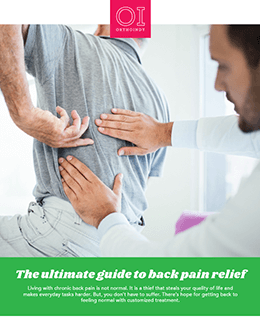
Get the Ultimate Guide to Back Pain Relief
Our comprehensive guide will help you understand back pain and its different causes, like sciatica, herniated disk, scoliosis, pinched nerves and more.



